Rajasthan Board Class 10 previous year question paper solutions of 2016 are considered as a useful resource for students. It helps students to get a hand of the real question paper. Solving the previous year question papers will help students to measure their preparation level and also improve their knowledge. The Class 10th previous year question papers provide an idea of the question paper pattern, important topics, types of question asked, weightage of marks allocated for each section, etc. Preparing for the board exams on the basis of the RBSE Class 10 Social Science Previous Year Question Paper 2016 with Solutions will help the students to ace the exams.
Students are advised to solve at least 2-3 years of previous question papers as there is a chance that few questions might be repeated in the final exam. Previous year question papers also boost the confidence level of the students and teach them time management skills. Refer to these solutions solved by subject professionals while solving the Rajasthan Board Class 10 Social Science 2016 Question Papers. Students can download free pdf of the solutions from the given link below.
Rajasthan Board Class 10 Social Science Question Paper 2016 with Answers – Free Download
Download RBSE Board 2016 Social Science Question Paper
Download RBSE Board Social Science Question Paper With Solutions
Rajasthan Board Class 10 Social Science Question Paper With Solution 2016
1. Who says “we did not wish to glorify the cult of the bomb and pistol but wanted a revolution in society.”
Answer: Bhagat Singh
2. In which form of government, ‘dignity of individual’ is best protected?
Answer: Democratic form of government.
3. Write the meaning of per capita income.
Answer: Per capita income measures the average income earned by a person in a given area in a specified year. It is calculated by dividing the area total income by its population
4. Write any two intermediate goods for the production of biscuits.
Answer: Flour and milk
5. What is investment?
Answer: Investment refers to the expenditure incurred by producers on the purchase of capital goods such as machinery, plant, etc.
6. What is the alternative name of Consumer Protection Act 1986?
Answer: Consumer Protection Act, also known as COPRA.
7. When and between whom Poona Pact signed?
Answer: The Poona Pact signed between Dr. Babasaheb Ambedkar and Mahatma Gandhi signed on 24 September 1932 at Yerwada Central Jail in Pune, India.
8. What is meant by sustainable development?
Answer: Sustainable development can be defined as an approach to the economic development of a country without compromising the quality of the environment for future generations.
9. Give any two characteristics of black soil.
Answer: Two characteristics of black soil are:
- Clayey texture and are highly fertile
- Rich in calcium carbonate, magnesium, potash, and lime but poor in nitrogen and phosphorous
10. Give any two name of endangered species.
Answer: Amur Tiger and Red Panda
11. Explain which way Rain Water Harvesting is carried out in Arid and Semi Arid region of Rajasthan.
Answer: Rain Water Harvesting is carried out in Arid and Semi Arid region of Rajasthan in the following ways
- Houses in semi-arid regions of Rajasthan have traditionally constructed taps for storing drinking water.
- They are big and are a part of well-developed rooftop rainwater harvesting.
- Tanks are constructed inside the courtyard and connected to sloping roofs of houses by pipe.
- Collected water is used till the next rainy season.
- These also help in cooling the house and all rooms due to conduction.
12. Describe the Geographical conditions for Rice production in India.
Answer: Rice is a kharif crop and it is the staple crop of India. The geographical conditions required for growth of Rice are as follows:
- It requires a high temperature 16°C – 27°C.
- High levels of humidity and rainfall above 100 cm are required.
- In the areas of less rainfall it grows with the help of irrigation.
- Rice can grow in a variety of soils including stilts, loads, and gravels but it grows well in alluvial soil with a sub – soil of impervious clay.
- Plain land or gentle slopes are ideal for growth of rice. Because stagnancy of water is a must for the cultivation of rice.
- Rice is grown in the plains of North and North – Eastern India, coastal areas and the deltaic region.
- India is the second largest producer of rice in the world after China. Rice is also the staple crop of a majority of Indians.
13. Describe the importance of Manufacturing Industries.
Answer: The manufacturing sector is considered the backbone of development due to the following reasons:
- Manufacturing industries help in modernising agriculture as it provides jobs in secondary and tertiary sectors.
- It helps in the eradication of unemployment and poverty.
- Export of manufactured goods expands trade and commerce, and brings in much-needed foreign exchange.
- It helps in prospering the country by giving a boost to the economy.
14. Describe the utility of Road Transportation.
Answer: The utility of Road Transportation:
- It has the greatest connectivity when compared to rail, air or waterways.
- Road transport is extremely convenient since it allows for door-to-door transport.
- Road transport requires little packaging effort, while the other modes require a lot of packaging.
- Road transport thus allows more business flexibility and growth models than the other modes.
Note- Attempt any two questions from Q. No. 15 to 17.
15. What do you mean by “Bretton Woods Conference”? Which are called the twins of it?
Answer: In July 1944, the Bretton Woods Conference took place at Bretton Woods in New Hampshire, USA. The International Monetary Fund (IMF) and the International Bank for Reconstruction and Development (IBRD) were established under this system.
16. What problems were faced by Indian weavers due to British industrialisation?
Answer: The problems faced by Indian weavers due to British industrialisation are:
- Due to industrialisation in Britain, their export market collapsed.
- As British traders started exporting machine-made clothes to India so their local market shrank.
- As raw cotton was being exported to England, there was a shortage of raw materials.
- When the American Civil War broke out, and the cotton supplies from the United States were cut off, Britain turned to India.
- As raw cotton exports from India increased, the prices of raw cotton shot up. Weavers in India were starved of supplies and forced to buy raw cotton at higher prices.
17. How did Bombay evolve as a modern city?
Answer: When Surat started declining, Bombay started growing. Trade started shifting to the new Bombay port which was controlled by European companies. Bombay started growing as a trading port in 1780’s. In 1854, the first cotton mill came up in Bombay. By 1862, four mills were at work. In Bombay, Parsis built huge industrial empires. In 1911, almost half of workers in Bombay cotton industries came from the neighbouring district of Ratnagiri. People came from other provinces to work in textile mills of Bombay. In 1911, almost 67% of large industries were located in Bombay and Kolkata.
18. How was the history of nationalism in Britain unlike the rest of Europe?
OR
Introduce the chemical weapons–Napalm and Agent Orange used by American army in Vietnam War.
Answer: In Britain the formation of the nation-state was not the result of a sudden upheaval or revolution. It was a long drawn out process. Before the 18th century there was no nation named Britain. The ethnic people living in the Isles were Welsh, Scottish, Irish and English. Their political and cultural traditions were different. As the wealth, power and importance of English started growing they started extending their influence over other islands. The English Parliament took power from the Monarchy in 1688. It was instrumental in forming the nation. In 1707 with Act of Union between England and Scotland resulted. The English people dominated Scottish people and they were not able to practice their culture and traditions. Even the Irish people faced a similar fate. In 1801, Ireland was forcibly made part of the United Kingdom. The British national anthem and flag was promoted.
Answer: The US Army in order to eliminate Guerillas fighters of Vietnam, they burned down the sections of forests and bushes by using NAPALM in flamethrowers. Napalm chemical weapon is a mixture of gasoline, plastic polystyrene and hydrocarbon benzene. Napalm causes unbearable pain on humans and causes death to humans. Agent Orange caused massive damage to agriculture, animals and people. It was primarily used to vacate people from an area. It destroyed all the plants. Due to usage of Agent orange close to 5 million people were killed and approximately half a million children were born with birth defects.
19. Describe any three forms of power-sharing.
Answer: Three forms of power-sharing are:
1. Horizontal distribution of power
- Power is shared among different organs of government, such as the legislature, executive and judiciary.
- Example – India This distribution ensures that none of the organs can exercise and utilise unlimited power.
- Each and every organ keeps an eye on the others.
- This system of arrangement is called a system of checks and balances.
2. Vertical distribution of power
- Power can be shared among governments at different levels.
- A general central government for the entire country and governments at the provincial or state and regional level.
- Example – India Union Government that is Central government and State Government.
3. Community government
- Power can also be shared among different socially active groups such as the religious and linguistic groups.
- Example – Belgium
20. Discuss three major challenges before Indian Democracy.
Answer: Three major challenges before Indian Democracy are:
- At least one-fourth of the globe is still not under a democratic government. These countries face the foundational challenge of making the transition to democracy and then instituting a democratic government.
- Most of the established democracies face the challenge of expansion. This involves applying the basic principle of democratic government across all the regions, different social groups and various institutions. This also means that less and less decisions should remain outside the arena of democratic control. Countries like India and the US face this challenge.
- Deepening of democracy is the challenge faced by every democracy in one form or another. This involves strengthening the institutions and practices of democracy. This requires an attempt to bring down the control and influence of the rich and powerful people in making governmental decisions.
21. Explain any three goals of economic development.
Answer: Three goals of economic development are:
- Reduce Poverty
- To increase the per capita income
- Development of Industrial sector
- Development of Agricultural sector
- To remove deficiency of capital
22. Explain the interdependency of primary, secondary and tertiary sector of an economy.
Answer: The interdependency of primary, secondary and tertiary sector of an economy are:
1. Primary sector activities means direct using of natural resources. It includes agriculture, dairy farming, fishing, etc. All that is produced in the primary sector is of no use, until it undergoes a change into finished product which is not possible without transportation.
2. Secondary sector covers activities in which natural resources products are changed into other forms through manufacturing. It is the manufacturing sector that makes these products and sells them in the market. Ex- cotton–cloths, iron ore, steel, etc.
3. Tertiary sector activities help in the development of primary and secondary sectors. For moving from primary to secondary sector and further to the market requires services of trades at different places and requires many other services. For all this we cannot think of working without transportation. Ex- transport and communication, education, health facilities.
23. Explain any three impact of globalisation in India.
Answer: Three impact of globalisation in India are:
- It made possible for large Indian companies to become multinational company
- It enabled the producers not to sell in the local market but also in the international market.
- New fields such as IT industries benefited.
24. Explain any three types of consumer exploitation in the market.
Answer: Three types of consumers exploitation in the market are:
- High Prices – To exploit consumers traders charge a price higher than the prescribed retail price.
- Duplicate Articles – Sellers in the name of genuine parts or goods, fake or duplicate items are being sold to the consumers.
- Adulteration – In items like oil, ghee and masala adulteration is made in order to earn higher profits.
25. How did the print culture assist the growth of nationalism in India?
OR
Write four main features of PremChand’s novels.
Answer: The print culture assist the growth of nationalism in India
- It assisted by providing easy access to nationalist ideas and ideas of quality and freedom.
- It became easier for social reformers to spread their opinions through newspapers which sparked off public debates.
- The common people began questioning the authority due to the power of reasoning.
- The nationalist newspaper reported on colonial misrule and encouraged people to participate in nationalist activities.
Answer: Four main features of PremChand’s novels are:
- He wrote novels in very simple languages.
- He wrote about social discrimination between sex gender.
- He wrote about social evils with women.
- He has also written about increased nationalism in the country.
26. Give the name of a conventional Source of Energy and describe note to anyone.
OR
Give names of Non-ferrous minerals. Describe any two.
Answer: Thermal Power, Hydroelectric Power, Nuclear Power.
Thermal Power: Thermal power is generated using coal. It is a vital source of electric current and its share in the total capacity of the nation in 2004-05 was 70 percent.
Answer: Gold, silver, copper, lead, bauxite, tin, aluminium, magnesium etc.
Aluminium – Pure aluminium is a silvery-white metal with many desirable characteristics. It is light, non-toxic, non-magnetic and non sparking. It is easily formed, machined and cast. Pure aluminium is soft and lacks strength, but alloys with small amounts of copper, magnesium, silicon, manganese and other elements have very useful properties.
Copper – Copper is malleable, ductile and a good conductor of heat. It is mainly used in electrical cables, electronics and chemical industries.
27. What do you understand by Secular State in India? Explain.
OR
Discuss the reasons for the origin of social differences.
Answer: India is considered to be a secular state which means that the government doesn’t interfere in relation between citizens and God. Also, there is no official religion or state religion and all religions are considered equal. In India, each person has the right to profess, practice and propagate his/her religion. The government does not interfere in the affairs of religious institutions, and cannot apply any taxes on them for the running of the institutions.
Answer: Some basis of origins of social differences are:
- Most social differences are based on the accident of birth. For e.g.- People may be tall, strong, weak girls or boys.
- Some social differences emerge because people choose to follow certain practices or principles.
- All social differences do not result in social divisions. Sometimes, even people belonging to different religions may have common interests.
28. Explain the various stages of ‘Second Movement for Democracy’ in Nepal.
OR
Describe four major efforts to reform the political parties in India
Answer: The various stages of ‘Second Movement for Democracy’ in Nepal
- In April 2006, the Nepal movement took place which was aimed at restoring democracy.
- In 2001, Birendra, the Nepalese king had accepted the massacre of the royal family.
- Gyanendra, the new king refused to accept the democratic rule.
- In February 2005 the king dismissed the P.M. and devolved the popularly elected parliament.
- In against the dismissal of P.M. all the major parties in the parliament formed SPA and called for a day’s strike in Kathmandu.
- This strike turned into an indefinite strike after the involvement of Maoist with 3 to 5 lakh people.
Answer: Four major efforts to reform the political parties in India are:
- A law should be made to regulate the internal affairs of political parties.
- It should be made compulsory for political parties to maintain a register of its members.
- It should be made mandatory for political parties to give a minimum number of tickets; about 1/3rd to its women candidates.
- There should be a quota for women in the decision-making bodies of the party.
29. In your opinion between formal and informal credit, which one is superior and why?
OR
In your opinion, between the barter system and monetary system, which one is superior and why?
Answer: Formal source of credit:
- Loans that are given by banks and co-operative institutions are called Formal sectors of credit.
- The functioning of these banks and co-operative institutions are supervised by the Reserve Bank of India – RBI.
- These institutions are required to report to the RBI the rate of interest, amount lending, etc.
- Borrowers are required to submit collaterals and documents.
Informal source of credit:
- Loans that are given by moneylenders, friends and relatives are called Informal sources of credit.
- They are not supervised by the Reserve Bank of India – RBI.
- They can lend money at any interest rate and use any means to get back their money.
- Borrowers are not required to submit collaterals and documents.
30. (A) Mark the following in the given outline map of India –
(i) Dandi
(ii) Sholapur
(B) Mark the following in the given outline map of India −
(i) Delhi
(ii) Chennai
Answer A and B: Activity to be done by yourself.
31. A “Democratic Government is better than any other form of Government”. Explain.
B. (i) Give importance to Public Vehicle.
(ii) Write the use of ramp.
(iii) Which right of the individual is violated by Road accident?
Answer A: Democracy is considered the best form of government because:
- It is a form of government in which the rulers are elected by the people.
- It is better than any other form of government in responding to the needs of the people.
- A democratic government is a better government because it is a more accountable form of government.
- It uses consultation and discussion to arrive on decisions. Thus improving the quality of decision-making.
- Democratic government provides a method to deal with differences and conflicts and treat all citizens with equality.
Answer i: Importance of Public Vehicle:
- Public transportation improves access. It improves access to education, employment and everything people need to be independent. 12% of transit riders are travelling to school and 60% of transit riders are going to work.
- Buses are safer than individual vehicles. Travelling on public transportation reduces the amount of cars on the road and decreases your likelihood of getting into an accident.
- Along with reducing air pollution, public transportation is also more fuel efficient per passenger mile, which contributes to an overall decrease in the amount of energy necessary for transportation.
Answer ii: Ramps help the people who are either paralysed or on wheelchairs due to some reason to move around the building easily. It also helps in movement of heavy goods from one place to another.
Answer iii: The Right to Life
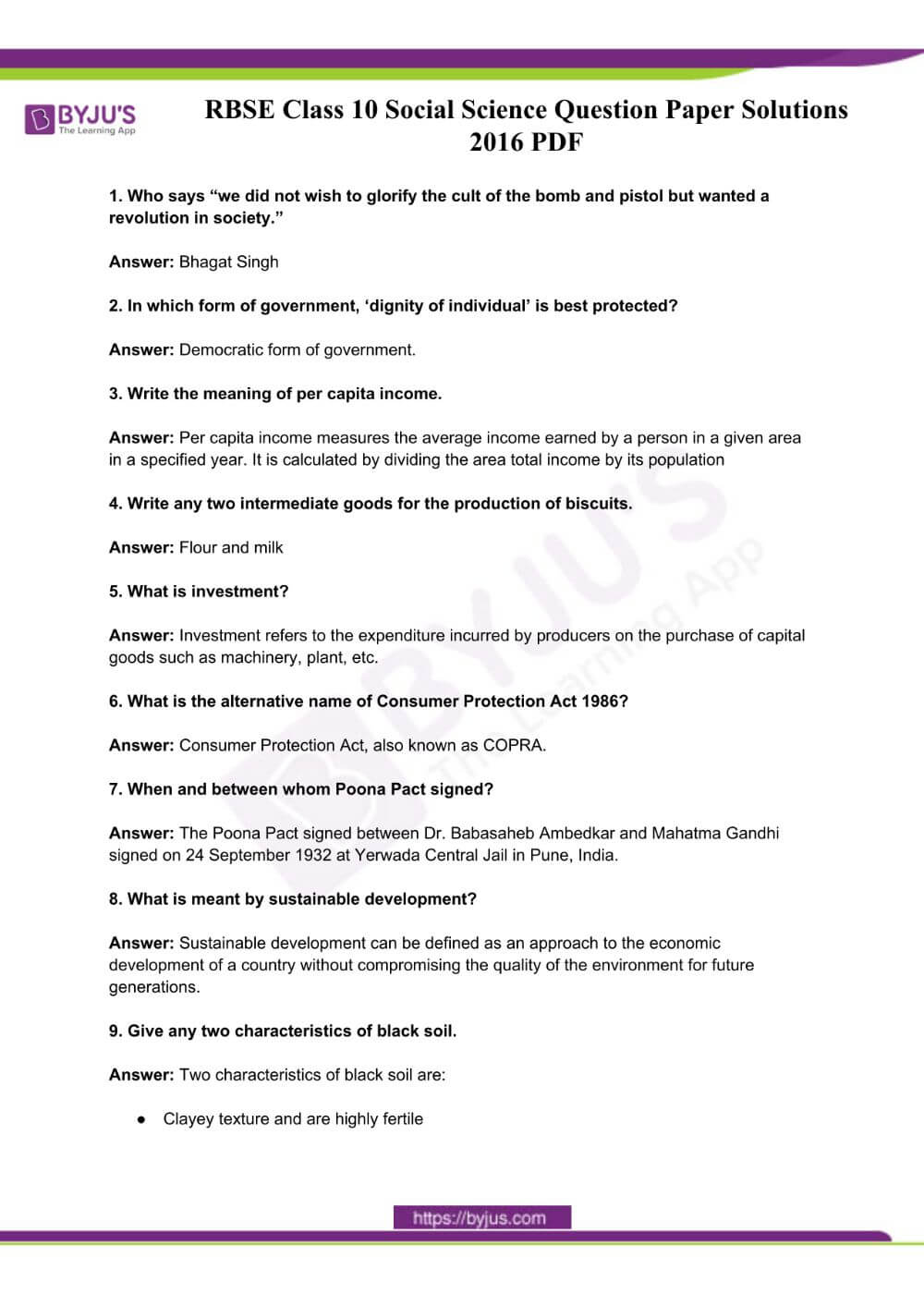
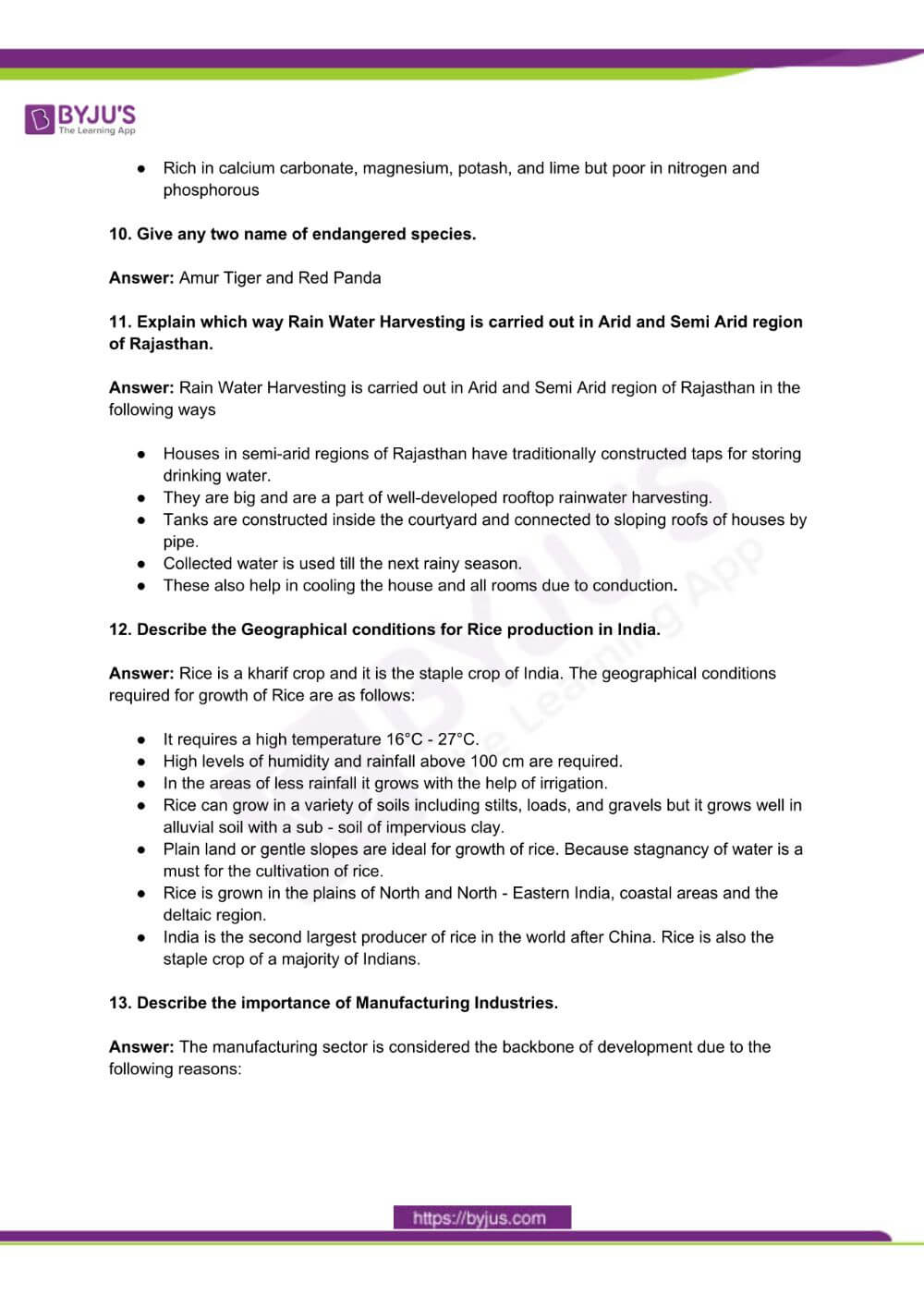
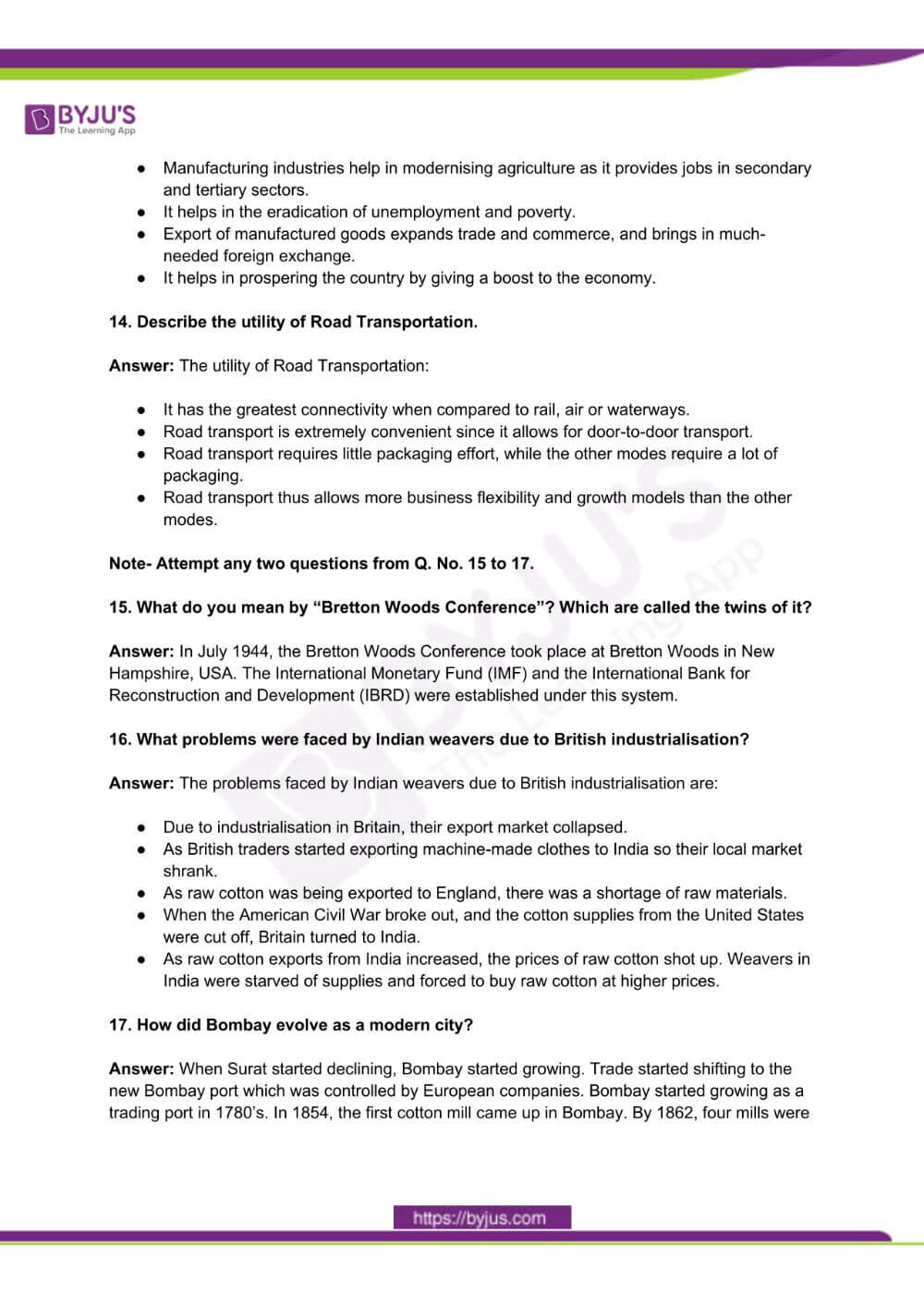
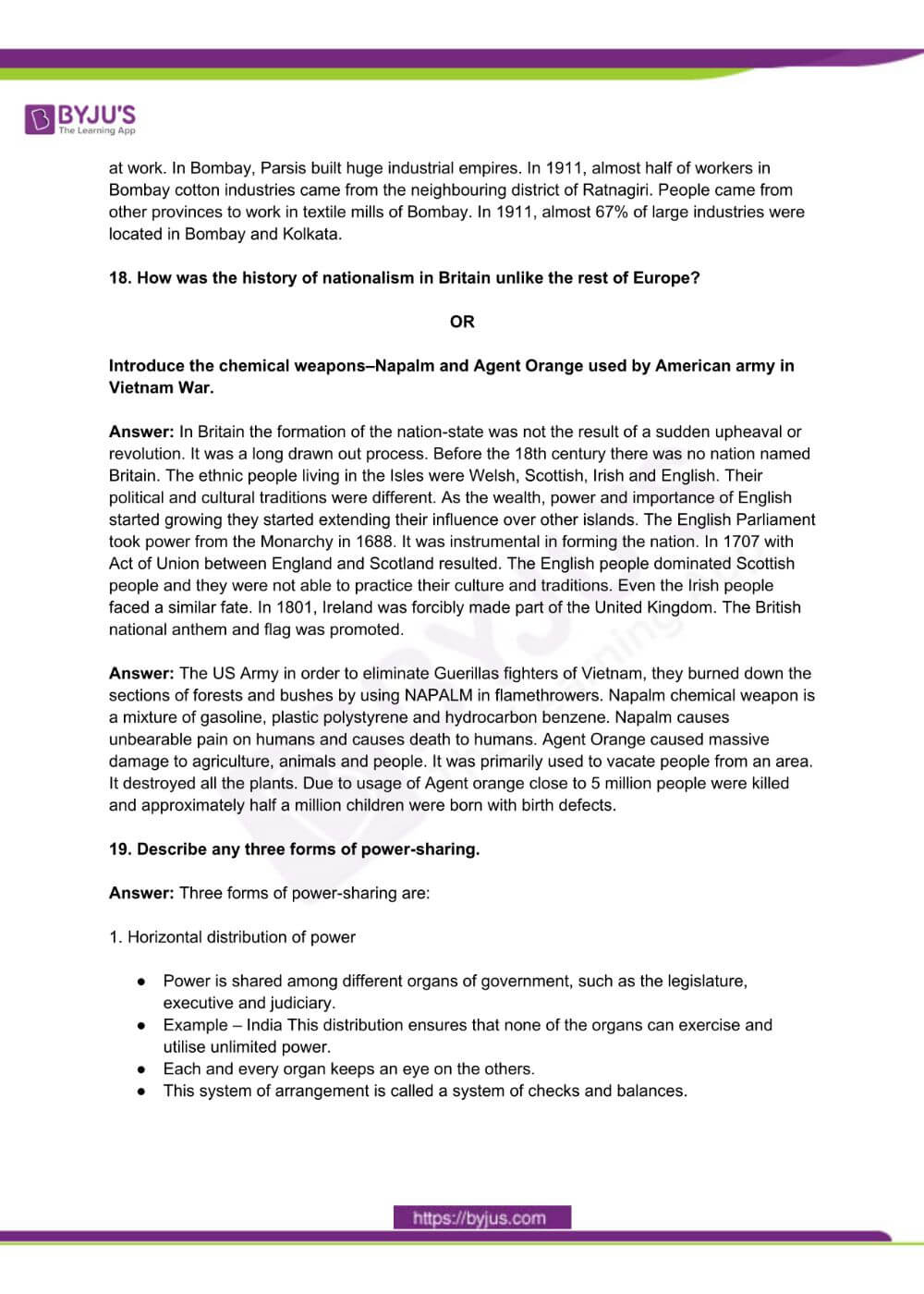
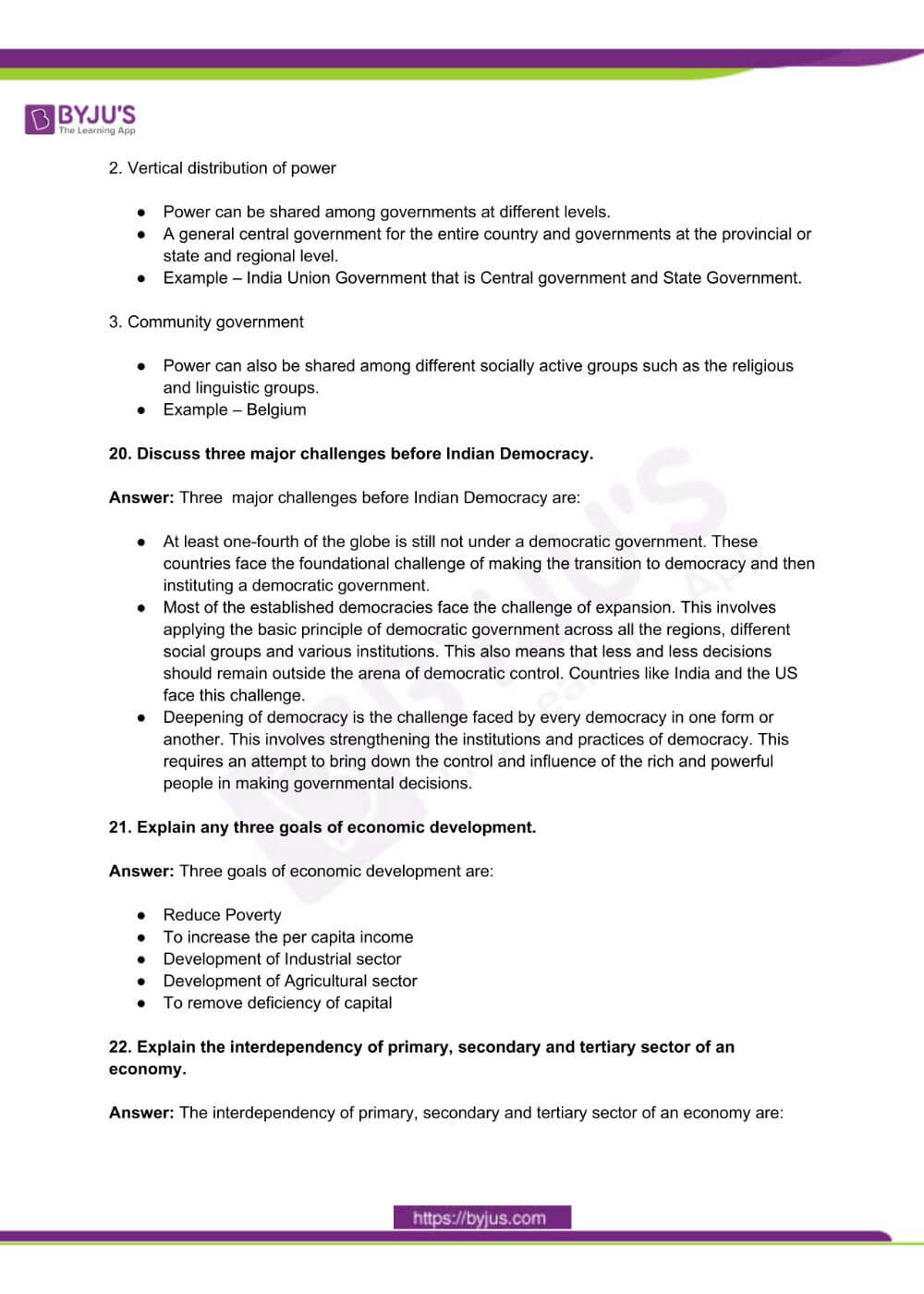
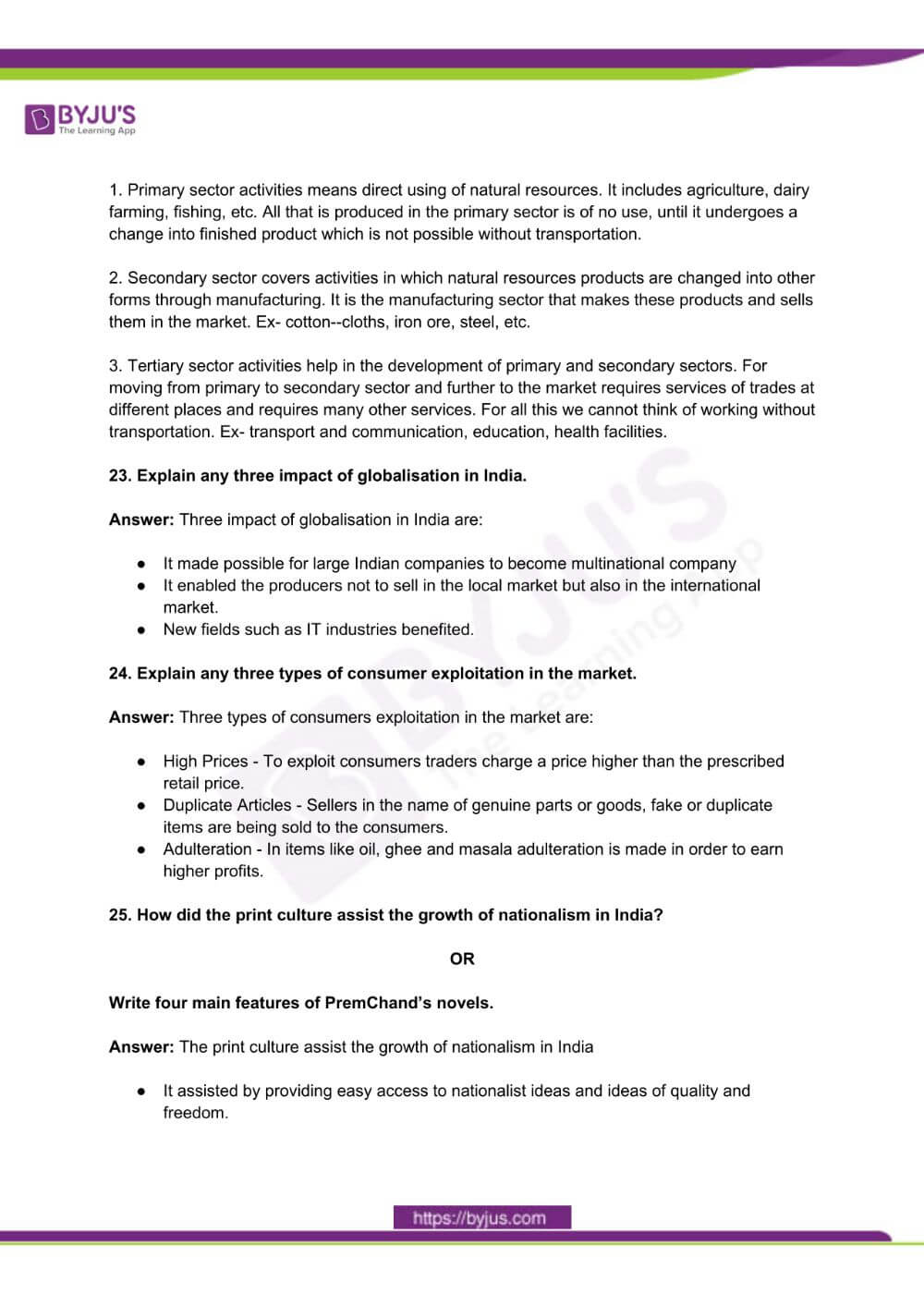
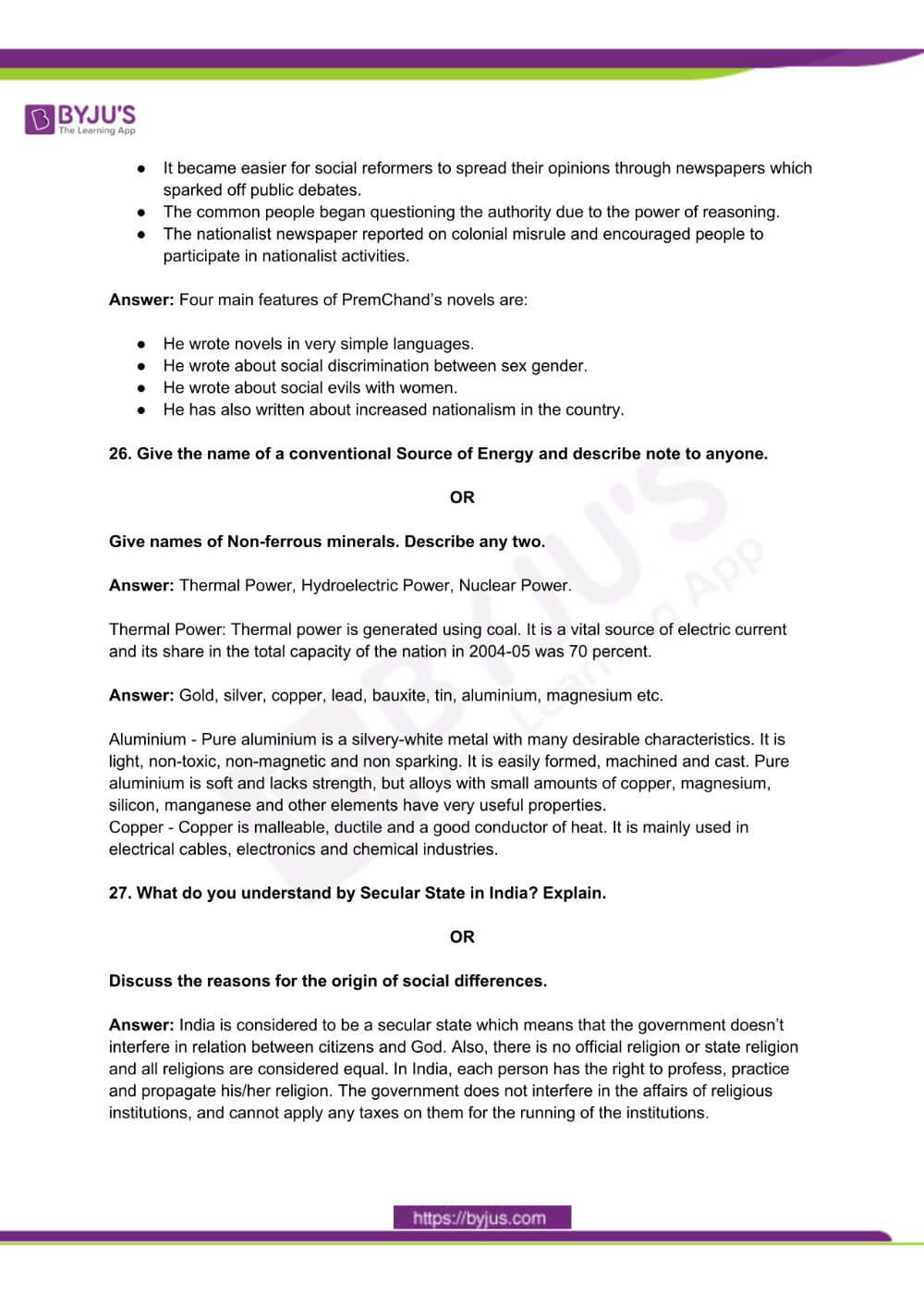
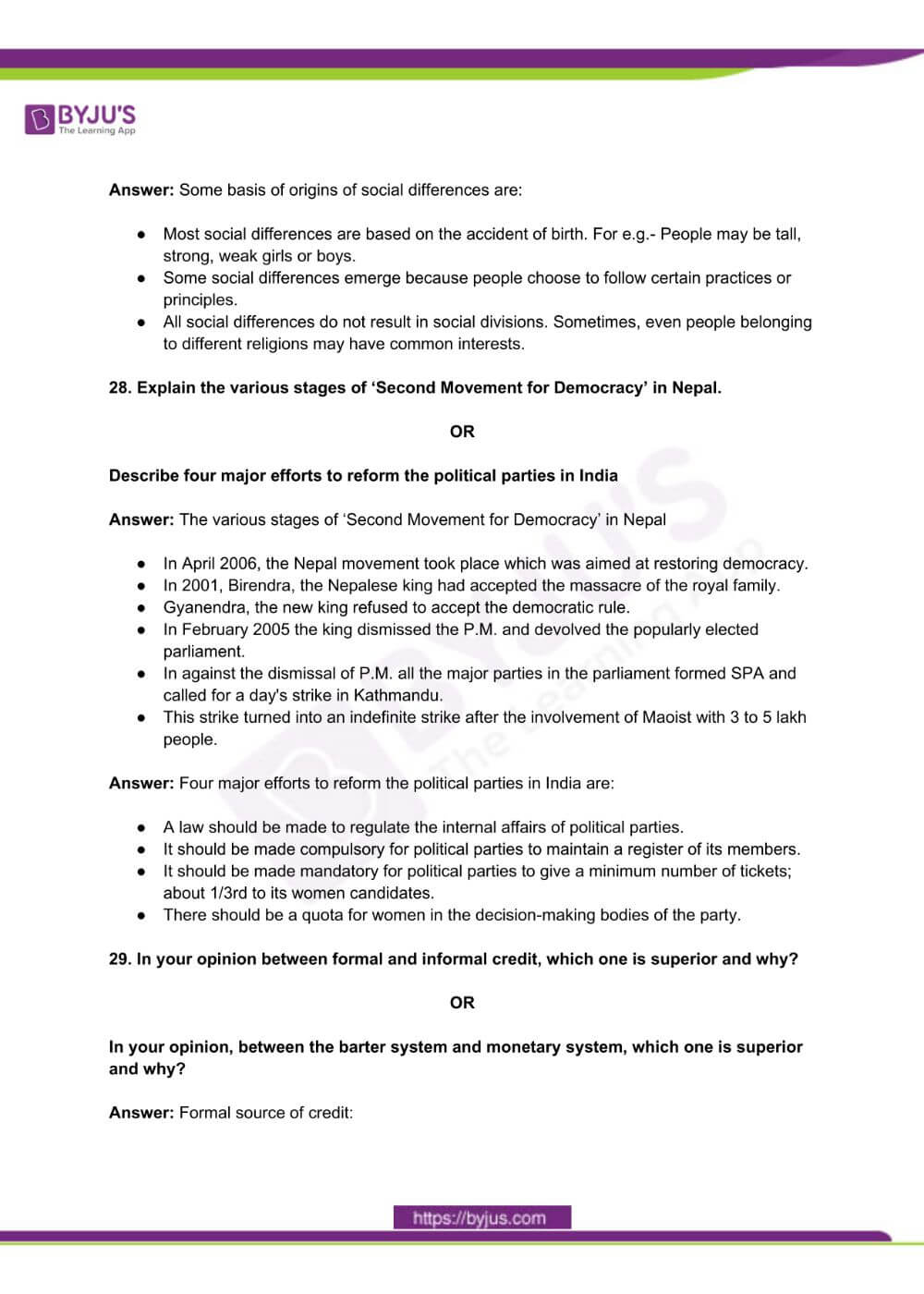
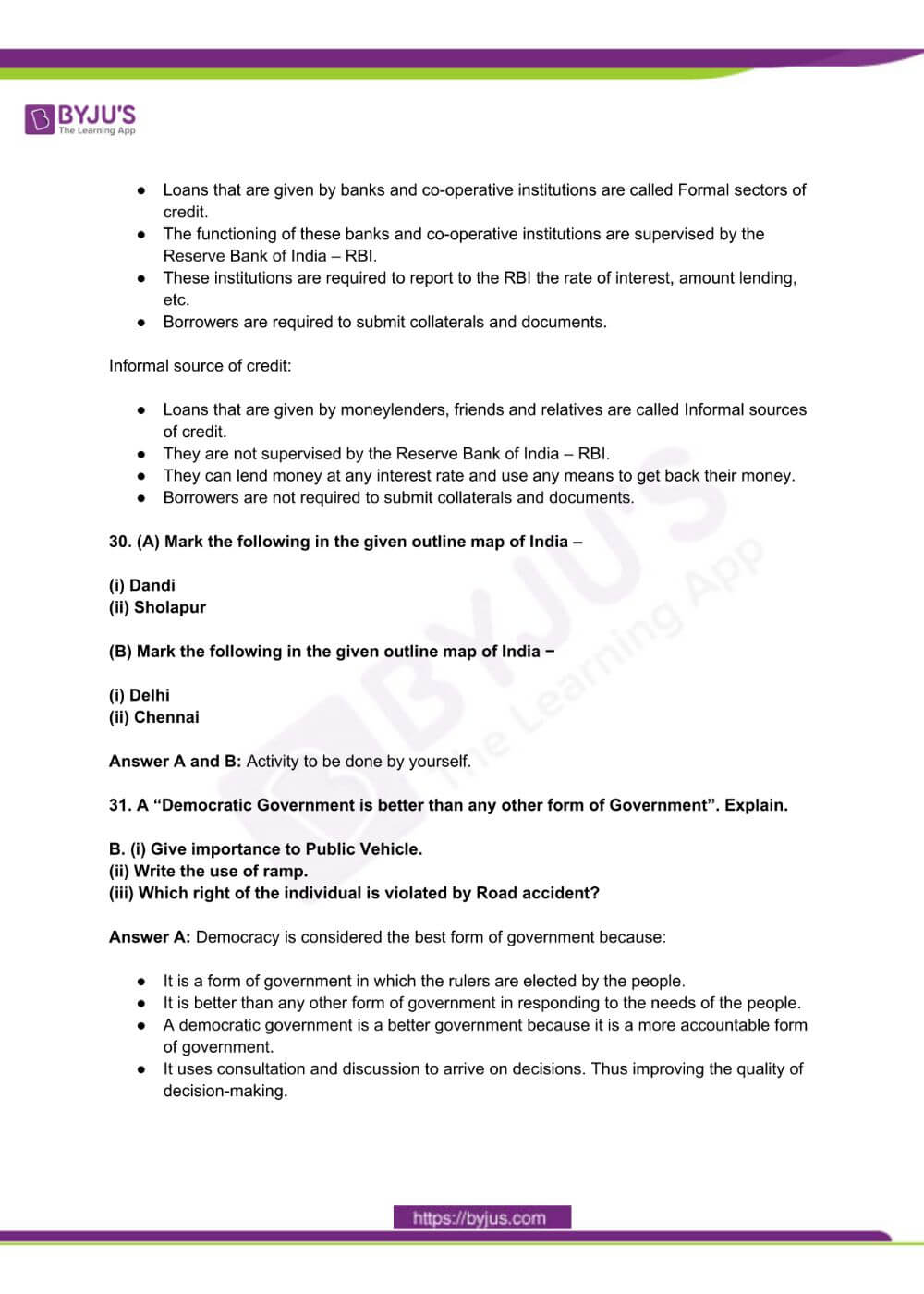
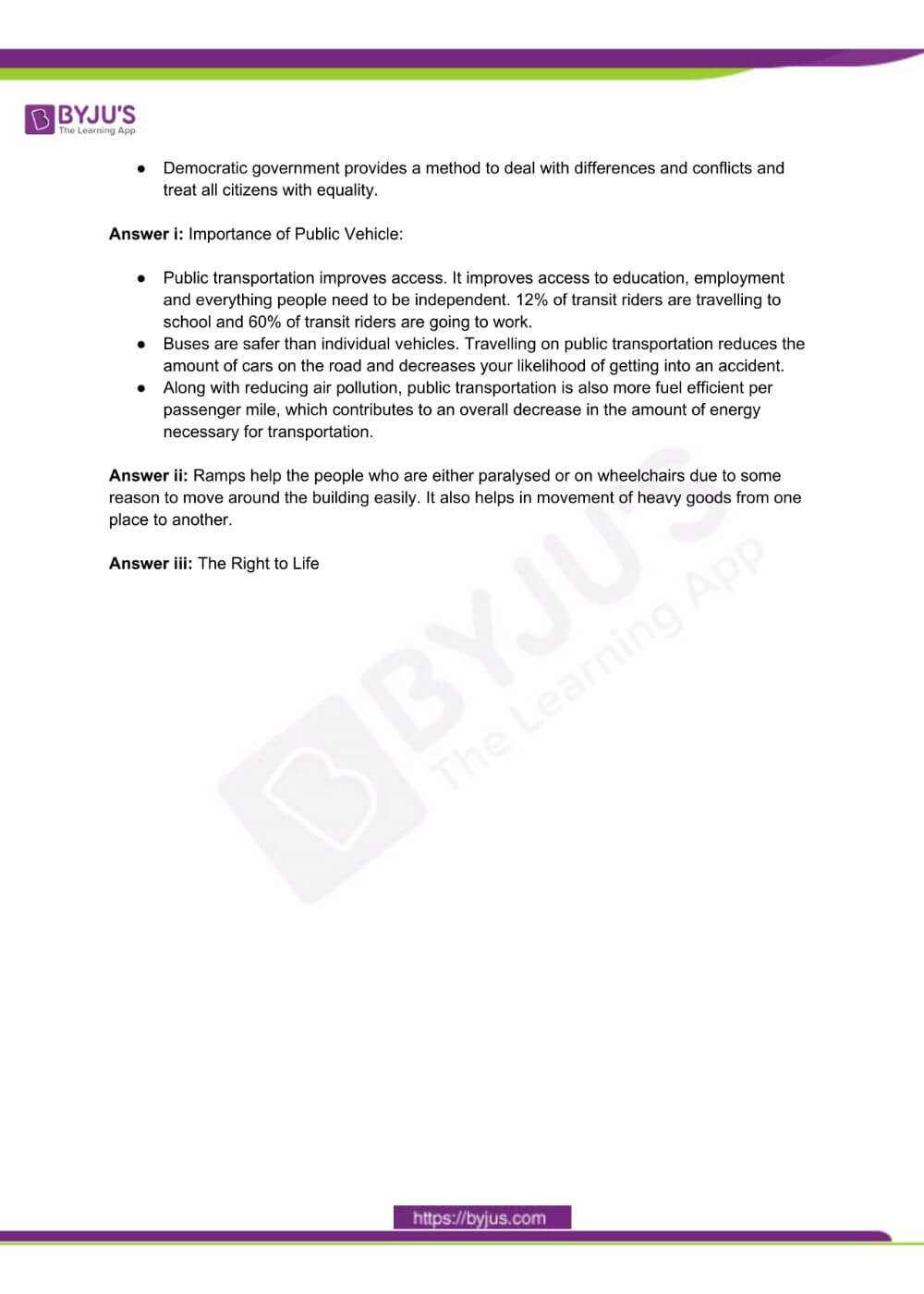
Comments